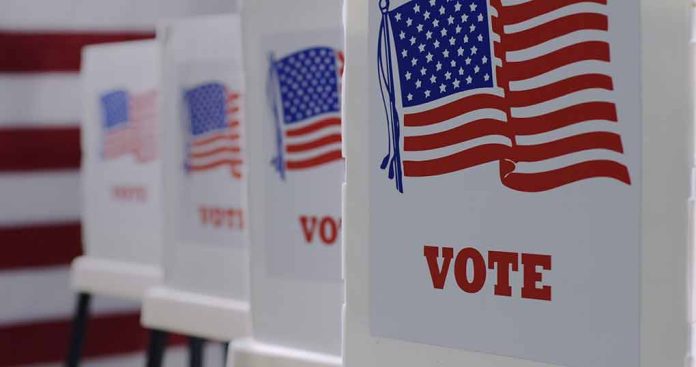
Republican-led states are taking pivotal steps to ensure voter registration integrity, sparking a debate about election measures and the purging of ineligible entries.
Key Takeaways
- Governor Greg Abbott of Texas reported the removal of over one million ineligible voters since 2021.
- Senate Bill 1 and other legislative measures aim to reinforce election security in Texas.
- Texas and Missouri, among other states, highlight the need for nationwide voting integrity reforms.
- The debate intensifies over whether Democrat-led states are taking adequate steps to ensure election safety.
Texas Takes the Lead in Voter Registration Purging
Governor Greg Abbott announced significant strides in securing electoral integrity in Texas. Since signing Senate Bill 1 in 2021, over one million ineligible voter records have been removed. This includes noncitizens, deceased voters, and those with felony convictions. Texas demonstrates a proactive approach to addressing these inconsistencies to protect the democratic process. The need for stringent measures was facilitated by Senate Bill 1, which criminalized ballot harvesting and tightened mail-in voting regulations.
“Election integrity is essential to our democracy,” stated Governor Abbott while emphasizing the role of state authorities in electoral oversight. His administration assures Texans of their unwavering dedication to protecting voting rights and preventing any form of illegal voting.
Nationwide Efforts for Electoral Integrity Reinforced
The actions undertaken by Texas are recently mirrored by other Republican-led states. Missouri has removed tens of thousands of inappropriate registrations, including inactive voters and those who have moved out of state. Idaho took similar measures, clearing over 144,000 voter records due to ineligibility or inactivity. These examples underline a collective drive toward ensuring a clean and credible voter database. Allegations of election fraud have pressured states to re-evaluate their voter rolls vigilantly.
The concern is that larger, Democratic-leaning states might harbor more substantial discrepancies in voter records, spotlighting the necessity for universal protocols governing electoral practices.
The Push for National Election Security Standards
The conversation about voter registrations and election security highlights a pressing need for harmonized federal guidelines. An executive order aims to enhance election integrity, echoing security measures found in developed countries. These actions initiate a call for tighter voter identification, possibly integrating biometric databases, akin to systems in India and Brazil. Paper ballots, championed by nations like Germany and Canada, are also advocated to foster election transparency.
With controversial voter records surfacing across states, the national focus remains on establishing cohesive guidelines capable of ensuring voter security and maintaining public confidence in U.S. elections. The enduring quest for comprehensive electoral reforms reinforces the democratic tenet of safeguarding fair and impartial voting systems.
🚨Breaking: The GOP-led states of Idaho and Missouri took nearly 300,000 registrations off their voter rolls after finding inactive, ineligible, or deceased voters, in addition to duplicates and voters who moved. Non-citizens ineligible to vote under those states' laws have also…
— Real Mac Report (@RealMacReport) April 1, 2025
Sources:
- Governor Abbott Announces Over 1 Million Ineligible Voters Removed From Voter Rolls
- Preserving and Protecting the Integrity of American Elections – The White House
- Three GOP States Find 300,000 Bad Voter Registrations, Along with Hundreds of Non-Citizens Registered to Vote



